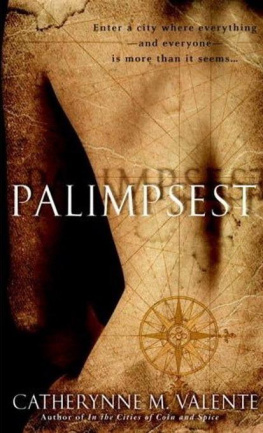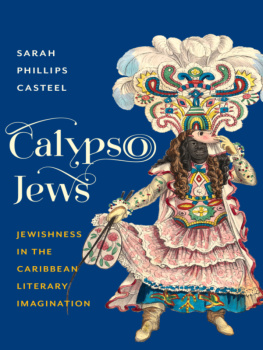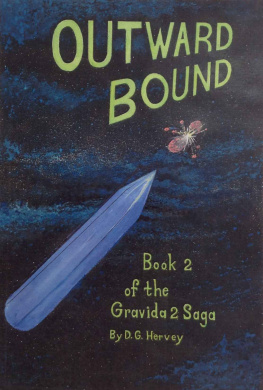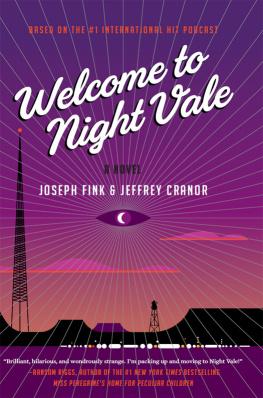Cathrene Vale Youngquist - Three Billygoats Gruff and Mean Calypso Joe
Here you can read online Cathrene Vale Youngquist - Three Billygoats Gruff and Mean Calypso Joe full text of the book (entire story) in english for free. Download pdf and epub, get meaning, cover and reviews about this ebook. year: 2002, publisher: Atheneum, genre: Art. Description of the work, (preface) as well as reviews are available. Best literature library LitArk.com created for fans of good reading and offers a wide selection of genres:
Romance novel
Science fiction
Adventure
Detective
Science
History
Home and family
Prose
Art
Politics
Computer
Non-fiction
Religion
Business
Children
Humor
Choose a favorite category and find really read worthwhile books. Enjoy immersion in the world of imagination, feel the emotions of the characters or learn something new for yourself, make an fascinating discovery.
- Book:Three Billygoats Gruff and Mean Calypso Joe
- Author:
- Publisher:Atheneum
- Genre:
- Year:2002
- Rating:5 / 5
- Favourites:Add to favourites
- Your mark:
- 100
- 1
- 2
- 3
- 4
- 5
Three Billygoats Gruff and Mean Calypso Joe: summary, description and annotation
We offer to read an annotation, description, summary or preface (depends on what the author of the book "Three Billygoats Gruff and Mean Calypso Joe" wrote himself). If you haven't found the necessary information about the book — write in the comments, we will try to find it.
Three Billygoats Gruff and Mean Calypso Joe — read online for free the complete book (whole text) full work
Below is the text of the book, divided by pages. System saving the place of the last page read, allows you to conveniently read the book "Three Billygoats Gruff and Mean Calypso Joe" online for free, without having to search again every time where you left off. Put a bookmark, and you can go to the page where you finished reading at any time.
Font size:
Interval:
Bookmark:
ACKNOWLEDGMENTS
This book owes debts to many people, books being the profligate creatures they are, forever leaving their authors to pay their bills. And so I must settle the tab.
Thank you to Ekaterina Sedia, who once asked me to write her a story about a city.
To Christopher Barzak, an invaluable friend and resource.
To Juliet Ulman, my benevolent editor.
To the members of the Blue Heaven Writers Workshop, especially Paolo Bacigalupi and Daryl Gregory.
To S. J. Tucker, whose music continually explains to me what Ive written.
To everyone who has supported me, offline and online, allowed me into their homes and their hearts, held me up, made me tea, and listened to (and read) my nonsense: we are all of us Palimpsest, a strange and marvelous city created only when we are together.
And finally, ever and always, to Dmitri Zagidulin, who doesnt like to be called a muse.
Also by
CATHERYNNE M. VALENTE

THE ORPHANS TALES
In the Night Garden
In the Cities of Coin and Spice
Yume No Hon
The Labyrinth
The Grass-Cutting Sword
POETRY
Apocrypha
Oracles
The Descent of Inanna
ABOUT THE AUTHOR
Born in the Pacific Northwest in 1979, Catherynne M. Valente is the author of the Orphans Tales series, as well as three other novels and five books of poetry. She currently lives in southern Maine with her partner and two dogs.
ONE
SIC TRANSIT TOKYO
S ei pressed her cheek against the cold glass; strips of black mountains tore by under lantern-blue clouds beyond her wide window. She knew a man was watching herthe way men on trains always watched her. The train car rocked gently from side to side, hushing its charges like a worried mother. She chewed on the ends of her dark blue hair. A stupid childhood habit, but Sei couldnt let it go. She let the wet curl fall back against her bare shoulder blades. She stroked the glass with her fingertips, shifted her hips against the white of the carriageshe was always moved to do this on the long-distance trains which crisscrossed the islands like corset stays. They were so pale and pure and unfathomably fast, like iridescent snakes hissing down to the sea. The Shinkansen was always pristine, always perfect, its aim always true.
Seis skin prickled as the mans eyes slid over her back. She felt their cold black weight, shifting her shoulders to bear up under it. He would be watching the small of her back now, where her silver-black shirt fell away into a mess of carefully arranged silk ropes and tin chains. He would watch her angles under the strings, the crease of her legs beneath an immodest skirt, her lips moving against the glass. The little wet fog of her breath. She could almost tell what he looked like without turning her head: good black suit, a little too small, clutching his briefcase like a talisman, probably a little gray at the temples, no rings on his hands. They all looked like that.
Sei turned, her blue hair brushing her hipbones. Good black suit, a little too small, clutched briefcase, freckles of gray in the hair. No rings. He did not seem startled or doubled over with desire as they sometimes were. He was calm, his answering smile measured and almost sweet, like a photograph of a soldier lost in a long-ago war. Coolly, without taking his dark eyes from hers, he turned over his left palm and rested it on the creamy brown edge of his briefcase.
His hand was covered in a mark she first thought horribleit snaked and snarled, black and swollen, where fortune-tellers lines ought to have been. Like a spider it sent long web-spokes out from a circle in the center, shooting towards the pads of his fingers and burrowing into the tiny webbing of skin between them. She took a step forward, balancing expertly as the car sped on, and stared. It was something like a little map, drawn there by an inartful and savage hand. She could make out minuscule lettering along the inky corridors: street names she could hardly read. There seemed even to be an arcane compass near his thumb. As she leaned in, the man shut his fist.
Sato Kenji, he said, his voice neither high nor low, but cultured, clipped, quiet.
Amaya Sei.
He quirked an eyebrow briefly, slightly, in such a way that no one afterwards might be able to safely accuse him of having done it. Sei knew the look. Names are meaningless, plosives and breath, but those who liked the slope of her waist often made much of hers, which denoted purity, clarityas though it had any more in the way of depth than others. They wondered, all of them, if she really was pure, as pure as her name announced her to be, all white banners and hymeneal grace.
She balanced one handmany-ringedon her hip and jerked her head in the manner of a fox snuffling the air for roasting things. Whats wrong with your hand?
Nothing. Kenji smiled in his long-ago way again. She quirked her own eyebrow, also blue, and delicately pierced with a frosted ring. He gestured for her to sit down and, though she knew better, they sat together for a moment, her body held tense and tight, ready to run, to cry out if need be. Their thighs toucheda gesture of intimacy she had never allowed herself with another passenger.
I think you like trains rather too much, Sei. The older man smelled of sandalwood and the peculiar thin scent of clean train cars.
Im not sure how thats any of your business.
It isnt, of course. I like them, too. I own a car, I have no need to ride the Shinkansen back and forth from Tokyo to Kyoto like some kind of Bedouin. Its an expensive habit. But love is love, and love is compulsion. I must, and I do.
He gently tapped the brass clasp on his briefcase and drew out a slender book, bound in black, its title embossed in silver:
A HISTORY OF TRAIN TRAVEL ON THE JAPANESE ISLES,
by Sato Kenji
Sei ran her hand over the cover as she had done the window glass. Her skin felt hot, too small for her bones. He opened the bookthe pages were thick and expensive, so that the stamp of the press had almost made little valleys of the kanji, the cream-colored paper rising slightly above the ink. Kenji took her hand in his. His fingernails were very clean. He read to her with the low, vibratory tones of shared obsession.
A folktale current in Hokkaido just after the war and passed from conductorto conductor held that the floor of heaven is laced with silver traintracks, and the third rail is solid pearl. The trains that ran along them werefabulous even by the standards of the Shinkansen of today: carriages containingwhole pine forests hung with golden lanterns, carriages full of riceterraces, carriages lined in red silk where the meal service brought soup,rice-balls, and a neat lump of opium with persimmon tea poured over it inthe most delicate of cups. These trains sped past each other, utterly silent,carrying each a complement of ghosts who clutched the branches likeleather handholds, and plucked the green rice to eat raw, and fell back insensateinto the laps of women whose faces were painted red from brow tochin. They never stop, never slow, and only with great courage and gracecould a spirit slowly progress from car to car, all the way to the conductorscabin, where all accounts cease, and no man knows what lies therein.
In Hokkaido, where the snow and ice are so white and pure that theyglow blue, it is said that only the highest engineers of Japan Railwaysknow the layout of the railroads on the floor of heaven. They say thatthose exalted engineers are working, slowly, generation by generation,to lay the tracks on earth so that they mirror exactly the tracks in
Next pageFont size:
Interval:
Bookmark:
Similar books «Three Billygoats Gruff and Mean Calypso Joe»
Look at similar books to Three Billygoats Gruff and Mean Calypso Joe. We have selected literature similar in name and meaning in the hope of providing readers with more options to find new, interesting, not yet read works.
Discussion, reviews of the book Three Billygoats Gruff and Mean Calypso Joe and just readers' own opinions. Leave your comments, write what you think about the work, its meaning or the main characters. Specify what exactly you liked and what you didn't like, and why you think so.












